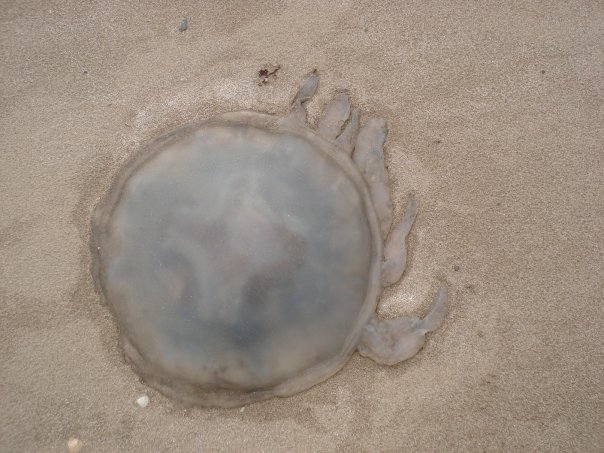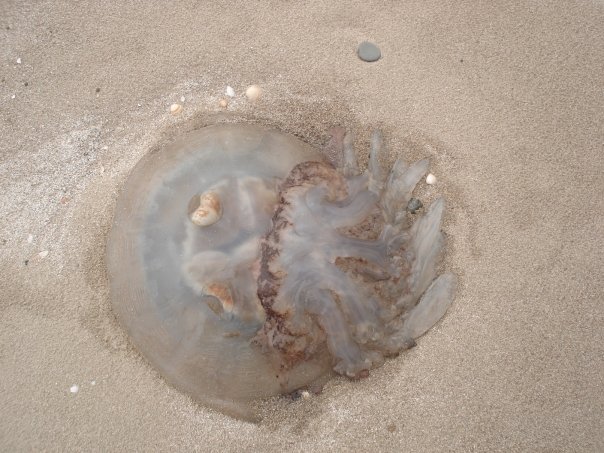
Washed-up jellyfish on the beach are a very common sight in Wales, especially during the summer months. Despite their fearsome reputation, most species are actually quite harmless, inflicting just a mild sting. That said, there are a vicious few such as the Lion’s Mane Jellyfish that can do plenty of damage, even posthumously, so unless you know your jellyfish really well, it’s probably best to avoid touching them!
In Welsh, the standard term for “jellyfish” is slefran fôr (also spelt slefren fôr or sglefren fôr), which comes from the verb sglefio (to slide, slither or skate). Môr mutates to fôr because jellyfish is a feminine noun in Welsh. The plural is slefrod / sglefrod môr.
slefran fôr
jellyfish (singular)
slefrod môr
jellyfish (plural)
However, as with many words in Welsh, you may encounter variations depending on where you live in Wales and who you speak to.
One expression you’ll hear quite often is cont y môr or cont fôr, with cont meaning the c-word in Welsh. Because of its rude connotation, slefran fôr is more widely accepted these days, but that doesn’t mean people no longer use it!
An onomatopoetic slang term for jellyfish is pysgodyn wibli wobli. Just like popty ping, some Welsh people will insist it doesn’t exist whereas others claim to use it. From what I’ve observed, very few adults use it seriously but it is popular amongst young children.
Finally we have pysgodyn jeli, which is the literal translation of “jellyfish,” or just jeliffish pronounced with a Welsh accent.
cont y môr
jellyfish (singular)
pysgodyn wibli-wobli
jellyfish (singular)
pysgodyn jeli
jellyfish (singular)

There are six main types of jellyfish that can be seen swimming around the coast of Wales. I’ve listed their English and Welsh names below!
- Moon Jellyfish = Slefren Gylchog / Slefren Fôr Gyffredin
- Barrel / Dustbin-Lid Jellyfish = Cap Glas / Slefren Wythgoes
- Blue Jellyfish = Slefren Las / Slefren Barti Ddu
- By-the-Wind Sailor = Hwyl Fôr
- Lion’s Mane Jellyfish = Sglefren Harri Morgan / Slefren Mwng Llew
- Compass Jellyfish = Môr Ddanhadlen
Which word(s) do you use to talk about jellyfish in Welsh? Let us know in the comment section below!
